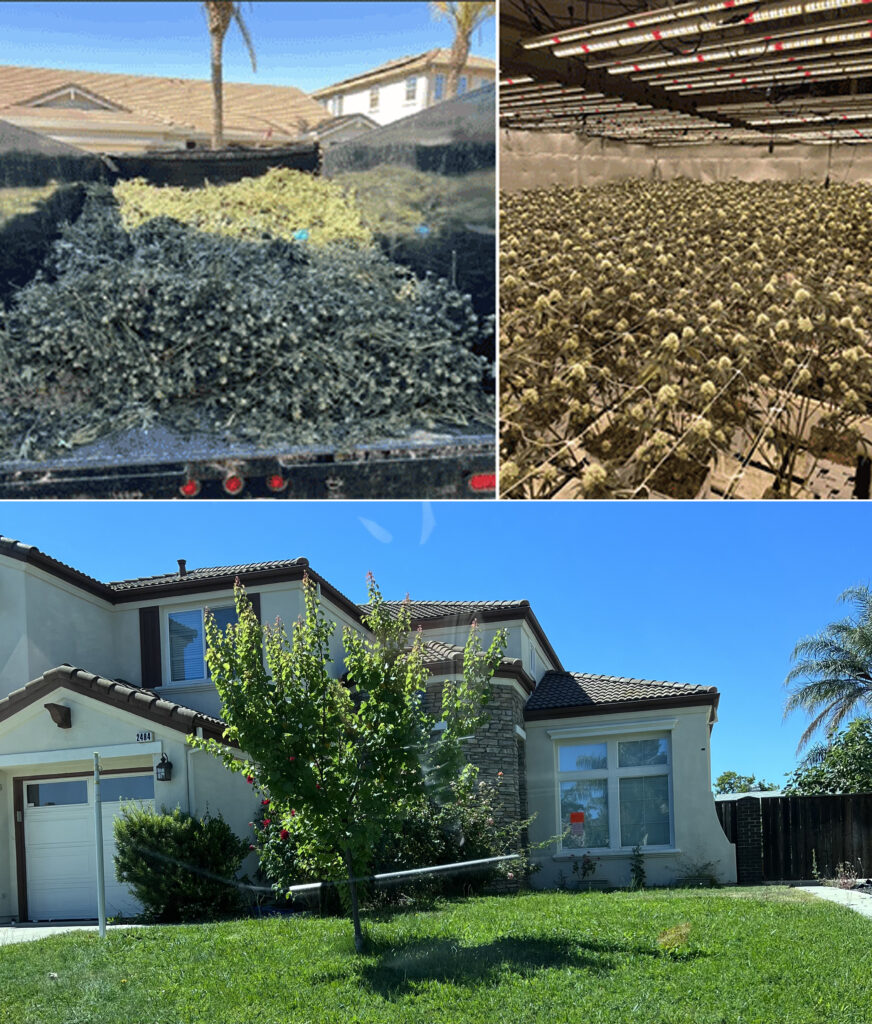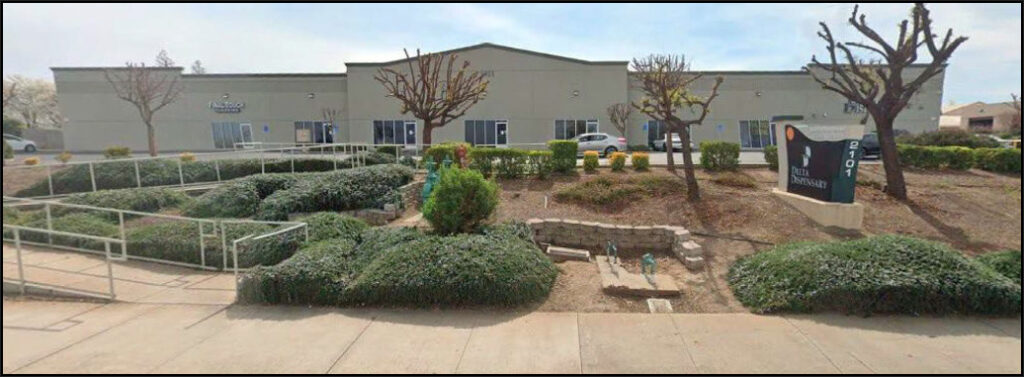Over $530M in illegal weed seized in California in 2025 Q2
Saturday, August 16th, 2025
Department of Cannabis Control also recalled 444 unsafe or noncompliant products; 413,302 illegal cannabis plants eradicated, 185,873 pounds seized; approve over 1,000 new businesses throughout state
Recent efforts continue to prioritize consumer and public safety and support the legal cannabis market
By California Department of Cannabis Control
Sacramento, CA – In its ongoing efforts to protect consumer safety, expand access to the legal market while dismantling illegal cannabis operations, the Department of Cannabis Control (DCC) today announced that it has seized over $62M in illegal cannabis, recalled 444 unsafe or noncompliant products, issued 256 new licenses, and transitioned 748 businesses from provisional licensure to annual licensure from April – June 2025.
Shutting down illegal cannabis operations
During the second quarter (Q2) of 2025, DCC-led or assisted enforcement actions (separate from UCETF actions) that resulted in the seizure of $62.4M worth of illegal cannabis, 44,187 illegal plants, 36,312 pounds of illegal cannabis flower, $89,535 in cash, and 16 firearms.
“DCC’s second quarter efforts show a department that is moving with urgency, strategy and accountability to protect Californians, support responsible operators and ensure the cannabis market delivers on its promise. These actions represent not just enforcement, but the protection of California’s communities, consumers, and natural resources.”
–Department of Cannabis Control Director Nicole Elliott
Consumer safety and business compliance
The DCC takes swift action to recall or embargo cannabis products that could pose a risk to consumers. In Q2, DCC issued 34 recalls covering 444 products. These recalls included 183 products recalled due to incomplete regulatory compliance testing and 181 recalls for labeling that was attractive to children. Additionally, 62 administrative actions were taken to ensure cannabis businesses operate within regulatory and consumer expectations resulting in 25 license revocations, 2 suspensions, and 35 citations with fines.
Transitioning and issuing cannabis licenses
During the second quarter, DCC converted 748 provisional licenses to annual status. The most transitions to annual licenses took place in Los Angeles County (328 licenses) followed by Mendocino County (137). Additionally, 256 new cannabis licenses were issued since April.

Governor’s Unified Cannabis Enforcement Task Force Results Seizes Additional $476 million of Unlicensed Cannabis Products During Same 3 Months
Governor Gavin Newsom announced on July 10, 2025, that the state seized $476 million worth of illegal cannabis between April and June, thanks to the combined efforts of the Governor’s Unified Cannabis Enforcement Task Force (UCETF), co-led by the Department of Cannabis Control (DCC) and the Department of Fish & Wildlife (CDFW).
“As a proof point of California’s commitment to the legal cannabis industry, the state seized over 92 tons of illicit cannabis product in the past three months alone,” said Newsom. “I thank the federal, state, and local partners who conducted these enforcement efforts for protecting consumers and supporting our legal cannabis market.”
In the efforts announced that day, UCETF received support from the California Department of Tax and Fee Administration, California Department of Corrections and Rehabilitation, California Department of Parks and Recreation, California Department of Pesticide Regulation, Employment Development Department, and California Department of Forestry and Fire Protection.
Combined enforcement highlights from April through June include:
- 413,302 illegal cannabis plants eradicated
- 185,873 pounds of illegal cannabis seized
- 214 warrants served
- 77 firearms seized
- 93 arrests
“Our teams continue to take an aggressive and proactive approach to eliminating unlicensed cannabis activities,” said DCC Director Nicole Elliott. “We will remain laser-focused on dismantling illicit cannabis operations until they are all permanently shut down.”
“Over the past quarter, UCETF conducted numerous highly strategic operations that significantly impacted the daily activities of illegal cannabis operators,” said Nathaniel Arnold, Chief of the Law Enforcement Division for the California Department of Fish and Wildlife (CDFW). “This success would not be possible without the continued support and dedication of our partners throughout the state.”
In May, UCETF conducted its largest successful operation to date with 200 sworn officers and staff from state, local, and federal agencies participating in an enforcement effort spanning 4,600 square miles in the Central Valley. Through 71 search warrants, officials seized:
- 105,700 illicit cannabis plants
- 22,057 pounds of processed cannabis valued at $123.5 million
- Nine firearms

A unified strategy across California
Since 2019, officials have seized and destroyed over 950 tons, or over 1.9 million pounds, of illegal cannabis worth an estimated retail value of $3.6 billion through over 1,700+ operations.
The cannabis task force was established in 2022 by Governor Newsom to enhance collaboration and enforcement coordination between state, local, and federal partners. Partners on the task force include the Department of Cannabis Control, the Department of Pesticide Regulation, the Department of Toxic Substances Control, and the Department of Fish and Wildlife, among others.
According to Moorea Warren of DCC Public Affairs, “The $476M is the amount of illegal cannabis seized by the Governor’s Unified Cannabis Enforcement Taskforce (UCETF). The Taskforce is co-chaired by the California Department of Fish and Wildlife and the Department of Cannabis Control (DCC). The $62.4 million is the amount of illegal cannabis seized by DCC’s Law Enforcement Division and is separate from UCETF’s amounts.”
Financial support for long-term enforcement efforts
In June, the Legislature made key changes to strengthen the DCC’s long-term enforcement efforts. This included amending state law to dedicate cannabis tax revenue to fund DCC civil and criminal enforcement activities, reducing the burden on licensees while ensuring sustained actions against illegal operators. In addition, the Legislature expanded Board of State and Community Corrections grant eligibility to local jurisdictions, especially those allowing retail access, to further enhance and support local enforcement efforts against illegal cannabis activity.
About the Department of Cannabis Control
The Department of Cannabis Control (DCC) licenses and regulates commercial cannabis activity within California. DCC works closely with all stakeholders, including businesses and local jurisdictions, to create a sustainable legal cannabis industry and a safe and equitable marketplace. DCC develops and implements progressive cannabis policies with robust protections for public health, safety and the environment. To learn more about the California cannabis market, state licenses or laws, visit http://www.cannabis.ca.gov.
To learn more about the legal California cannabis market, state licenses, and laws, visit cannabis.ca.gov.
Allen D. Payton contributed to this report.



































